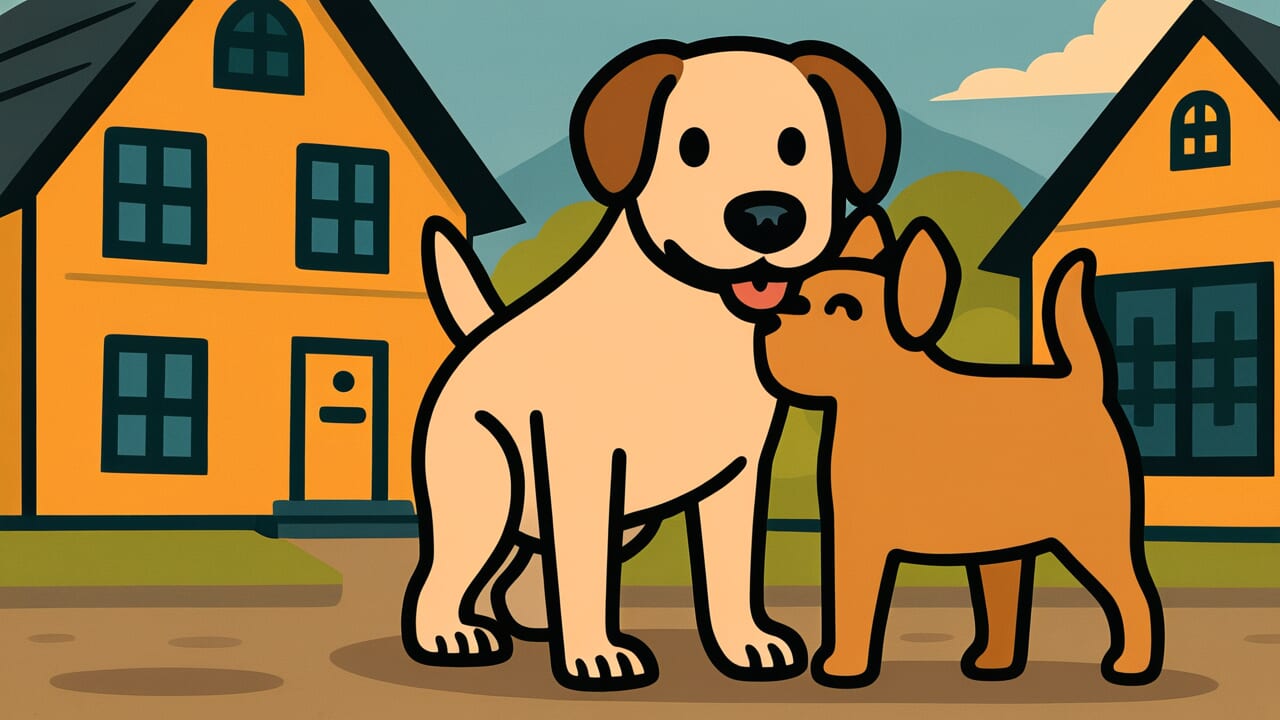How to Read “If you’re going to be a dog, be a landlord’s dog”
Inu ni naru nara ōya no inu ni nare
Meaning of “If you’re going to be a dog, be a landlord’s dog”
This proverb teaches that if you’re going to serve someone or work under them, you should choose a powerful person.
If you’re going to be in a subordinate position like a “dog,” it’s better to be a wealthy landlord’s dog than a poor family’s dog. You’ll get better treatment and a more stable life.
This saying applies when choosing a job, selecting business partners, or working under someone. It emphasizes looking at a person’s abilities and future potential, not just ideals or emotions.
Today, this doesn’t simply mean choosing big companies. It means picking environments where you can use your skills, grow, and find stability.
If you’re going to work under someone anyway, choose a place with better conditions and possibilities. This proverb teaches practical wisdom for navigating life.
Origin and Etymology
No clear records exist about when this proverb was created. However, people likely used it during the Edo period.
The word “dog” carries important meaning here. Dogs have long represented animals that serve humans. Their loyal obedience to masters resembled samurai serving their lords in feudal Japan.
“Landlord” doesn’t just mean someone with a big house. It refers to powerful people with authority and wealth.
In Edo period society, choosing which master to serve greatly affected your life. A samurai serving a powerful lord had much better treatment and prospects than one serving a minor retainer.
This proverb likely emerged from this social reality. It was passed down as survival wisdom, not idealistic theory.
If you’re going to serve someone, serving someone powerful makes more sense. This reflects a cold but realistic understanding of life.
The saying probably came from common people’s lived experience. It offered practical advice for getting through life.
Usage Examples
- If you’re unsure about job hunting, remember “If you’re going to be a dog, be a landlord’s dog” and choose a company with good prospects
- If you’re choosing company employment over freelancing, follow “If you’re going to be a dog, be a landlord’s dog” and join a solid company
Universal Wisdom
This proverb has endured because it shows how to balance fundamental human desires with reality.
Everyone wants to live independently and freely. Yet most people actually work for someone else and follow someone’s direction.
Facing this reality, people must choose. Pursue ideals and take a harder path? Or accept reality and seek better conditions?
This proverb shows the wisdom of the second choice. But it doesn’t recommend living without dignity. Instead, it teaches the intelligence to recognize your position clearly and make the best choice within it.
Humans have pride, but also need stability. The desire to support your family and live securely is timeless and universal.
This proverb doesn’t deny these practical needs. It honestly acknowledges them and teaches how to act accordingly.
You can’t live on ideals alone. That’s exactly why you need to choose wisely.
Our ancestors left us this saying after seeing both human weakness and strength. It’s deep wisdom based on understanding people, spoken only by those who know life’s harshness.
When AI Hears This
Even with the same “subordinate” strategy, who you serve completely changes your returns. This is what game theory calls “structural game selection.”
What’s interesting is that your abilities and effort stay the same, but the benefits you receive change based on the other party’s resources.
Say you’re an employee earning 300,000 yen monthly. At a company with 1 billion yen annual revenue, that’s 0.03% share. At a 10 billion yen company, it’s 0.003%.
In larger organizations, the same salary comes with vastly greater “spillover” from surplus resources. Benefits, training investment, and networking opportunities multiply. This is asymmetric externality.
More importantly, a landlord’s dog has higher “positional value.” Being at the bottom of a large organization sometimes gives you more external credibility and negotiating power than being second-in-command at a weak organization.
It’s like being an editor for a YouTube channel with 10 million subscribers versus running a channel with 100 subscribers. The former makes finding your next job much easier.
This proverb is sharp because it recognizes that “where you work” matters more than “how you work.” Edo period people understood through experience the importance of choosing the game board itself, not just your strategy.
Lessons for Today
This proverb teaches modern people the courage to view their position objectively and the wisdom to choose what’s best.
Independence and entrepreneurship get glorified today. But not everyone suits that path. If you choose to work in an organization, you don’t need to feel ashamed at all.
What matters is making that choice consciously. Don’t just drift into decisions. Seriously consider which organization fits your values and life plan.
Look beyond salary and prestige. Evaluate growth opportunities, company culture, and future potential from multiple angles.
Also, you’re not forever bound to one place. Career changes are common now. You can build experience while planning your next step.
Your first choice doesn’t determine your entire life.
This proverb teaches the importance of choosing the best environment for yourself while facing reality. That’s not compromise.
It’s a mature adult choice, taking responsibility for your own life.



Comments